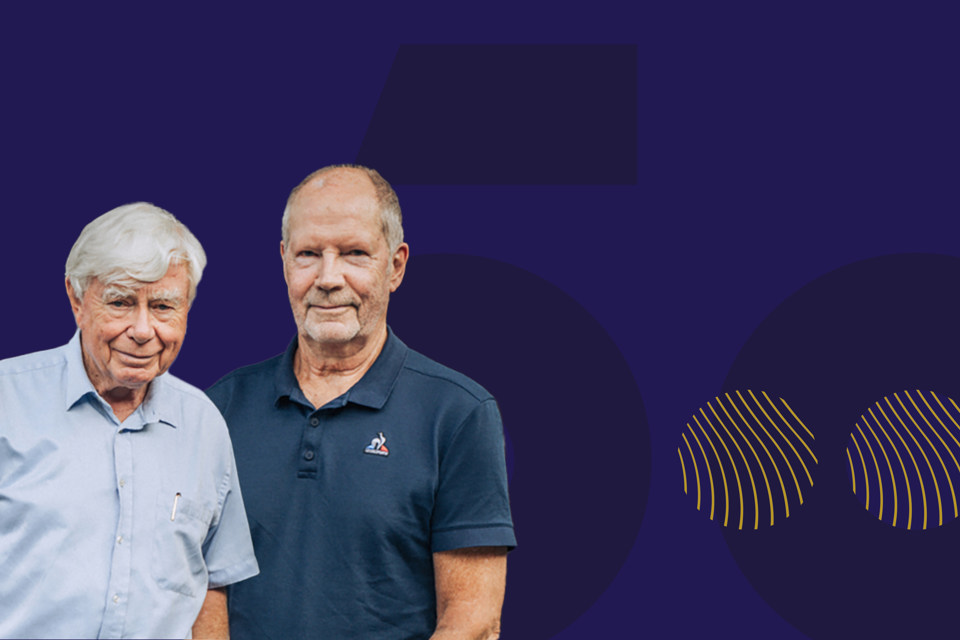A full member of the university family
When the two former leaders look at AAU today, they see a university that is an accepted and respected part of the Danish university family. However, it differs less from the other universities than it did in the past.
"I see the university today as being more traditional. The learning model is no longer so unconventional compared to what’s going on at the other universities, and it’s my impression that the very strong connection to the region is less pronounced than it once was," says Sven Caspersen, referring to the establishment of campuses in Esbjerg and Copenhagen.
Sven Caspersen and Peter Plenge do not quite agree on whether the establishment of the AAU campus in Copenhagen was a good idea. But they both believe that it has been one of the major milestones in the university's history that has had a decisive impact on where the university is today. The Copenhagen campus gives AAU the opportunity to train students that the university would probably never succeed in attracting to Northern Jutland.
The name change from Aalborg University Centre to Aalborg University is another milestone in AAU's history. Although primarily symbolic, the name change marked the university's transformation into a 'classical university'.
The establishment of the medical programme is a third and important milestone for AAU. The programme was a desire since the university was established, but resistance was so great for so many years that it was not possible until 2010.
"It has been a long struggle to get the medical programme for Aalborg. When we were given the terms of reference for AUC in 1973, it came as a shock that it said that we were not allowed to have a medical programme," says Sven Caspersen.
Fortunately, over time, Denmark began to look differently at AAU's desire to train doctors in Northern Jutland.
"There were two reasons why the medical programme was important to us. One was that Northern Jutland simply lacked doctors, so that was an argument for us in relation to the politicians. Another thing was that we had an interest in getting the medical field to Aalborg. The doctors draw a lot of research funding, and the collaboration with a large hospital really generates income," says Peter Plenge.
Not a Jutland DTU
With the establishment of the Faculty of Medicine and the medical programme, AAU became a 'multi-faculty university' representing a wide range of scientific disciplines. This was – and is – important for ensuring a strong, broad AAU, they believe.
"Some people had started talking about how we risked ending up as 'a Jutland DTU'. I think we completely agreed that we had no ambition for that to happen," says Peter Plenge addressing Sven Caspersen.
"We totally agreed on that. There was constant concern that the humanities and social sciences would be wiped out," Sven Caspersen replies.
Today, the former rector and the former university director are very concerned about the general development of the humanities and social sciences. They call it 'very sad' that AAU has had to close several of its language subjects.
"If you want to maintain a broad university, you have to at least offer the major European language subjects. In the long run, I think that language subjects creating engineers with a different profile than that of DTU graduates is a missed opportunity," says Peter Plenge.
He adds:
"But it also speaks to the fact that the way the university is managed has changed. Today, the economy plays a much bigger role. When Casper (Sven Caspersen, ed.) was at the helm, he always made sure to "tax" the areas that brought in a lot of money, so that the money was transferred to the areas that did not earn as much," he adds.
They both point out that the autonomy of universities has been curtailed. In the past, they had far more freedom in deciding over their own finances. Today, the Ministry of Higher Education and Science sets a very clear framework for how universities manage their money.










